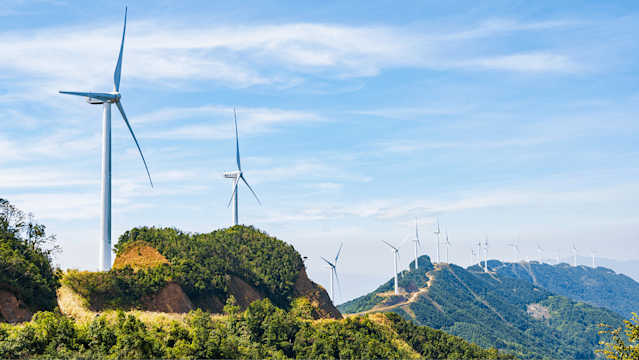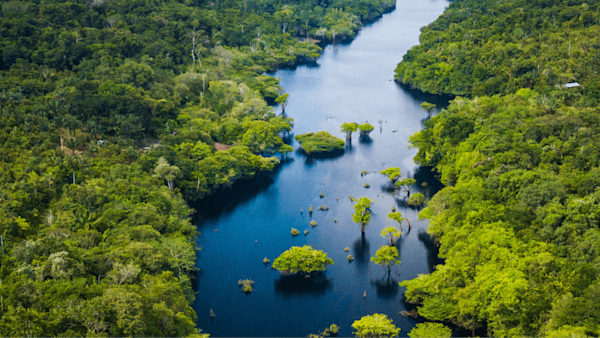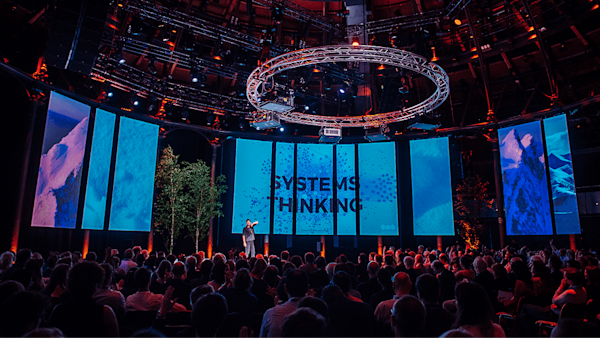This is part of a series of impact stories highlighted in our 2024 Impact Report. To explore more impact stories, see the full collection.
Our policy work continues to broaden the uptake of the circular economy. Working with over 45 national governments, we’ve doubled down on our aim to target high-impact policy agendas and deepen our policy network, with a particular focus on delivering insights, influencing high-level policymaking, and advancing solutions. The progress we’ve made this year underscores the growing recognition of the circular economycircular economyA systems solution framework that tackles global challenges like climate change, biodiversity loss, waste, and pollution. It is based on three principles, driven by design: eliminate waste and pollution, circulate products and materials (at their highest value), and regenerate nature. as a powerful tool for addressing common global challenges.
“[The circular economy] presents universal solutions to some of the world's most pressing, cross-cutting sustainable development challenges.”
Liu Zhenmin
Senior Advisor to the Chinese COP Delegation at COP28Beyond our substantial efforts to inform negotiations for a global plastics treaty, we’ve published two major new pieces of research highlighting the untapped potential of the circular economy as a policy mechanism.
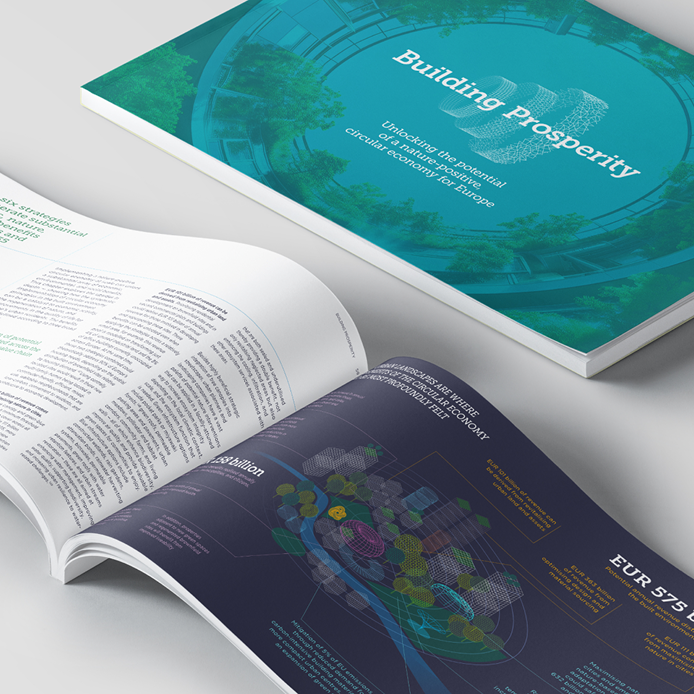
Building Prosperity: Unlocking the potential of a nature-positive, circular economy for Europe highlighted how the circular economy can transform Europe’s built environment, delivering economic, social, and environmental benefits. Its release was carefully timed to coincide with the European elections and ensure that the circular economy remains a priority for the next five-year term. We shared these insights with the incoming European administration, urging it to prioritise the circular economy. As a result, the circular economy is a central pillar of the EU’s new Competitiveness Compass, which identifies actions needed to boost the bloc’s competitiveness on the global stage. In turn, we convened circular leaders across the built environment ecosystem to identify pilot projects that could turn the report’s recommendations into tangible solutions.
" We highly appreciate the leadership shown by the Ellen MacArthur Foundation and its members over the last 15 years in advocating the transition from linear to circular systems, and in driving that change through practical actions."
– Aurel Ciobanu-Dordea, Aurel Ciobanu-Dordea, Director in charge of Competitive Circular Economy & Clean Industrial Policies, Directorate-General for Environment, European Commission
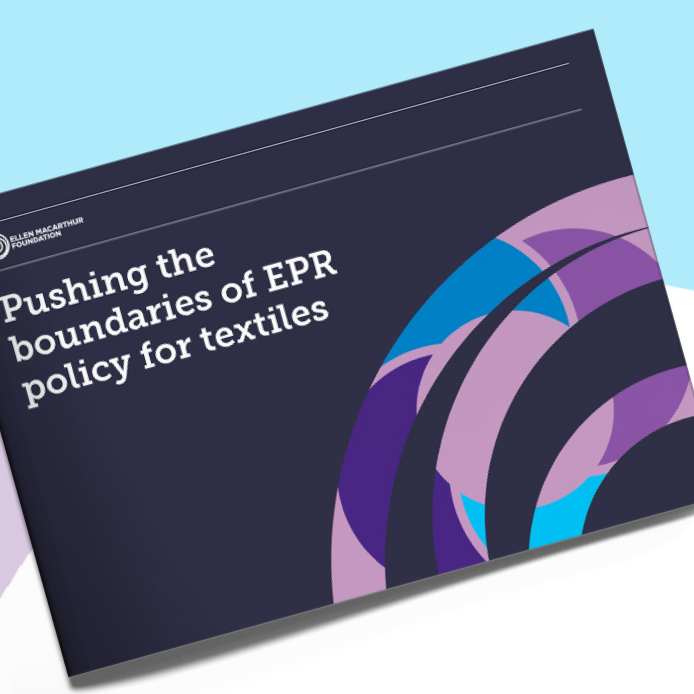
Our research on Pushing the boundaries of EPR policy for textiles made a robust case for Extended Producer Responsibility (EPR) as a tool to advance a circular economy for fashion and textiles, advocating for a policy shift that moves beyond recycling to embrace broader circular solutions including reuse and design innovation. The report resonated globally, with EPR for textiles rising up the policy agenda in countries from the US and Colombia to Kenya. It has also positioned the Foundation to influence the G7 Agenda for Circular Fashion and Textiles, a platform that will enable us to address gaps in circularity of textile waste, the longevity of products, and economic challenges to the transition to circular business models. High-level forums like this are critical to our work, providing a powerful mechanism for driving global change.
"Our cooperation with the Ellen MacArthur Foundation has been instrumental — empowering us with substantive knowledge, strategic insights, and global best practices.”
Elisabeth Türk
Director, Economic Cooperation and Trade, United Nations Economic Commission for EuropeIn this collection
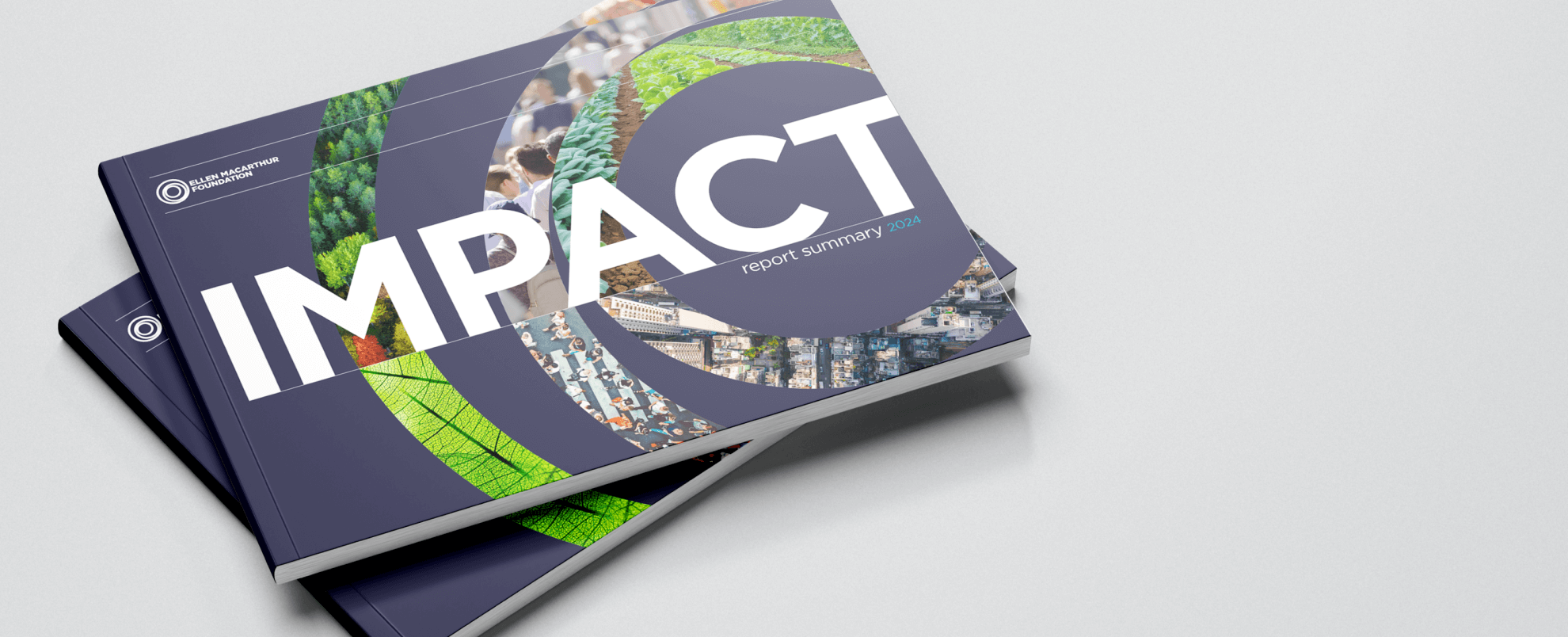
Breaking new ground
The Ellen MacArthur Foundation's Impact Report Summary 2024
We are a leading global organisation committed to transforming the economy so that it works for people and the environment.







